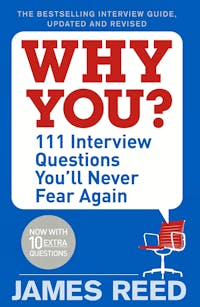How to Answer the Interview Question: “What Is Your Greatest Accomplishment?”
All products and services featured are independently selected by WikiJob. When you register or purchase through links on this page, we may earn a commission.
- Why Interviewers Ask “What Accomplishments Are You Most Proud Of?”
- How to Choose Your Major Accomplishments With the STAR Interview Method
- “Tell Me Your Proudest Accomplishment or Greatest Achievement” Sample Answers:
- Typical Mistakes to Avoid
- Examples of Bad Answers
- What Is Your Greatest Achievement Sample Answer
empty
empty
- Final Thoughts
“What is your greatest accomplishment?” is one of the most challenging behavioral questions you can be asked during a job interview.
As children, we are often taught to practice humility; to not show off in social situations because it is considered rude. Consequently, as adults, we often feel awkward discussing our greatest achievements, even if we are asked about them directly. We subconsciously worry we are coming across as unlikeable or obnoxious.
Of course, in many situations, including at work, humility is a useful trait. But the entire purpose of a job interview is to convince your interviewer that you are the best person for the job. So, start embracing what makes you great.
This article will outline the purpose of behavioral interview questions and help you understand what your interviewer is really looking for when they ask about your major accomplishment, It will then explain how to prepare your answer and provide some sample answers to help you get started.
Why Interviewers Ask “What Accomplishments Are You Most Proud Of?”
Contrary to what your subconscious is trying to tell you, your interviewer isn't attempting to trick you into revealing arrogance when they ask the ‘greatest achievement’ job interview question. They just want to know what it is that makes you stand out from the crowd.
How to Choose Your Major Accomplishments With the STAR Interview Method
As with all behavioral interview questions, it is crucial that you practice in advance.
TopInterview is a network of expert career coaches focused on demystifying the interview process and instilling confidence in job seekers across the US. Job seekers work one-on-one with professionals experienced in HR and recruiting practices to create custom interview strategies and get the practice they need to impress at their next interview.
The best way to describe your greatest achievement while only including relevant information is to use the STAR interview method.
The acronym works as follows:
- S = Situation. In what context did your greatest accomplishment occur?
- T = Task. What challenges did you face or what goal did you want to achieve?
- A = Action. What action did you take? What skills did you use?
- R = Result. What was the result? What did you learn from the experience? Why is this your greatest accomplishment?
Ideally, you should talk about a workplace accomplishment. However, you could refer to school, volunteering or even your hobbies, so long as you demonstrate transferable skills and prove you are the best person for the job.
‘My greatest achievement’ examples could include:
- Giving a great presentation at work.
- Beating sales targets.
- Training for and completing a marathon.
- Organizing a successful charity event.
- Mentoring a coworker or fellow student.
Now you know how to structure your answer and the common pitfalls to avoid, here are some examples of accomplishments using the STAR technique to help you prepare your own.
Step 1. Think About Your Values and Best Qualities, and Try to Highlight Them
What does your greatest achievement say about what you value in life? How does this make you perfect for the job?
For example, you might have been named the top salesperson at your company last year. You consider this your greatest accomplishment because you value hard work and making people happy.
You always come to work with a smile, you do your best to get to know your target customer and adapt your sales techniques to each customer's needs, and you make it your personal goal to go above and beyond the targets set for you.
This tells your interviewer that:
- You are passionate about customer service and you aim to exceed the expectations of your customers and employer.
- You are a hard worker, a positive and adaptable person, and you have excellent communication skills.
- You are ambitious and thrive on quantifiable targets and results.
Consider working backwards to ensure you highlight your best qualities sufficiently.
Step 2. Research the Job and Company
Think about the skills and qualities valued by the company and tailor your answer to demonstrate some of these.
The best way to start your research is to review the job description, as it will list the skills necessary to fulfil the responsibilities of the job. You could also:
- Browse the company’s website, blog and LinkedIn profile for previous projects, achievements and client testimonials.
- Read news articles about the company.
- Read online employee reviews of the company.
Step 3. Be Honest
It is tempting to embellish the truth, or even lie, because you worry your greatest achievement is not good enough or you can’t think of anything that qualifies.
Remember, your interviewer isn’t expecting you to have eradicated world hunger. What qualifies as a ‘greatest achievement’ is subjective and personal to you.
So long as you can demonstrate skills and qualities that set you apart from other candidates, the interviewer will not mind which accomplishment you choose to discuss.
Step 4. Be Specific
Your answer should be clear and detailed. Avoid using vague language such as, “I oversaw a project.” Explain what the project entailed and what your role in it was.
Step 5. Ensure Your Accomplishment Is Recent and Relevant
Learning to use a word processor on your computer might have been impressive several decades ago when typewriters were the norm. Today, almost every job candidate is expected to know how to type on a computer.
Make sure your answer is relevant to today’s job market and the skills required of today’s candidates. Often this means using an example that happened relatively recently.
“Tell Me Your Proudest Accomplishment or Greatest Achievement” Sample Answers:
It is likely that the company received numerous, if not dozens of applications for the same job. Therefore, one of the purposes of the interview is to assess which candidates stand above the rest.
“What is your greatest accomplishment?” or “What is your greatest professional achievement?” is an example of a behavioral interview question, commonly used in interviews to assess skills and competencies through discussions about your past experiences.
Some other examples of behavioral questions include:
- “Tell me about a time you demonstrated leadership.”
- “Tell me about a time you failed.”
- “Describe a time you solved a difficult problem.”
“What is your greatest achievement?” and its similar variations are designed to evaluate:
- What you value most in life, how this can benefit the company and whether you are a good fit for the company’s culture.
- How you view success and whether this coincides with the company’s commercial goals.
- Whether you possess desired soft skills such as communication, leadership potential, teamwork, adaptability, creativity and problem-solving.
- Whether you have ambition and a drive to succeed. For example, if you had to fight hard for your greatest achievement.
To find out which jobs fit your personality best, visit our partner CareerFitter and take the Career Test for FREE.
Why You?
101 Interview Questions You'll Never Fear Again
Learn the secrets to excelling at interview, direct from top interviewers and recruiters, in Why You? by James Reed, chairman of recruitment specialists REED.
Check price on AmazonTypical Mistakes to Avoid
Steer clear of any of these:
-
Rambling – A long-winded answer will indicate to your interviewer that you are unprepared. Using the STAR interview method to ensure you are only mentioning the key points is an easy way to avoid this problem.
-
Indecisiveness – Don’t give your interviewer a long list of possible achievements because you cannot decide which one to discuss. Prepare your answer in advance, so you don't have to think up an accomplishment on the spot.
-
Trying to be funny – For example: “My greatest achievement was when I managed to get to work on time for once. Just kidding, my real greatest achievement is…”
There can be a time and a place for humour in a job interview, but it is not when the interviewer has asked you a serious question.
-
Putting others down to make yourself look better – Do not fixate on others’ failures or use them to make your accomplishment seem more impressive, even if your accomplishment involves you correcting someone else’s mistake.
For example: “One time, a coworker completely messed up and deleted loads of files. He tried to recover them but he was never very good at his job so, needless to say, he was unsuccessful. In the end, I felt obligated to step in. Of course, I succeeded where he failed.”
Other people’s shortcomings may be incidental to your story, but focusing on them will make you appear unprofessional or suggest that you are insecure. Focus on your own qualities instead.
Examples of Bad Answers
“What’s my greatest achievement? I’m not sure.
"Maybe the time I stopped two coworkers arguing? Is that an accomplishment?
"One time I gave a great presentation at work... Or once, I raised £600 for a sponsored run, but I guess it wasn't a great accomplishment because I gave up in the middle and had to return the money to my sponsors.”
Why this answer is bad:
- The candidate has vocally expressed indecisiveness, which is not an attractive trait in a potential employee.
- They rambled but failed to expand on any of their accomplishments or talk about their skills.
- They ask the interviewer for reassurance, indicating they have low confidence.
- They mentioned an accomplishment but then reduced its impact by expressing doubt about its worth.
“My greatest accomplishment is finally passing my driving test. I actually failed four times and passed on my fifth attempt.
"The first time I failed was because I was speeding. The other times weren’t my fault. I was so happy when I finally passed. I’m a great driver.”
Why this answer is bad:
- The situation is irrelevant in a work context.
- The answer does not specify any key skills or values which would make them a great job candidate.
- The candidate focuses on their failures rather than their successes.
- The candidate disparages others in an attempt to make their achievement appear more impressive.

What Is Your Greatest Achievement Sample Answer
Now you know how to structure your answer and the common pitfalls to avoid, here are some sample answers using the STAR technique to help you prepare your own.
"My Greatest Achievement" Example Answer 1
Situation:
“My greatest accomplishment is when I took over a children’s reading group in my current position as a Library Assistant.
"Children between the ages of 7 and 12 can come to the library on a Saturday morning, we read a chapter of a book together and then we discuss it.”
Task:
“At the time, my official responsibility was to provide customer service at the front desk. However, one of our Library Supervisors retired and no replacement was hired. Due to the lack of staff, the library made the difficult decision to cut the weekly children’s reading group._”
Action:
“I was saddened to hear about the disappointment felt by the children and their parents. I volunteered to change my shifts so I worked on a Saturday morning and could run the reading group.
"I am now the leader of the group. I help choose the books we read, prepare questions for educational discussion and organize games and other activities.”
Result:
“We get around five to ten children per session. Their parents are so grateful we were able to continue the group and I enjoy interacting with children who love to read.”
Why this answer is good:
- This answer says great things about the candidate's priorities: they value education, community and childhood development.
- The example is relevant to the workplace.
- The candidate showed initiative by taking over the group.
- They show great management skills and leadership potential through their ability to organize and run the group.
- They also show skills in communication, adaptability, teamwork and problem-solving.
"My Greatest Achievement" Example Answer 2
Situation:
“My greatest accomplishment occurred in my previous position as HR Administrator.”
Task:
“I noticed team members often had difficulty locating specific files – which reduced productivity, particularly during busy periods.”
Action:
“So I took the initiative to implement a team filing system. I scanned every vital document, which I then saved to shared folders on our computer system.”
Result:
“At the end of the month, our time sheets indicated that the time spent looking for files had reduced by several hours.”
Why this answer is good:
- The example is relevant to the workplace.
- The candidate has demonstrated skills such as resourcefulness, creativity, innovation, teamwork, adaptability and problem-solving.
- Their project was successful, giving weight to the accomplishment.
Final Thoughts
You should now be able to prepare a well structured and detailed answer to the behavioral interview question, “What is your greatest accomplishment?”. Below is a summary of the key points covered in this article:
- Get comfortable with talking about yourself.
- Ensure your answer is structured well and only includes relevant information, by using the STAR interview method.
- Ensure your greatest accomplishment is work-related or demonstrates skills which can be directly applied in the workplace.
- Research the job and company and tailor your answer accordingly.
- Focus on your best qualities and what makes you stand out.
- Be concise, avoid rambling and don’t lie or embellish the truth.
Finally: practice. The best way to approach behavioral interview questions is to prepare in advance. This way you will know exactly what you are going to say when you are asked about your greatest accomplishment.






